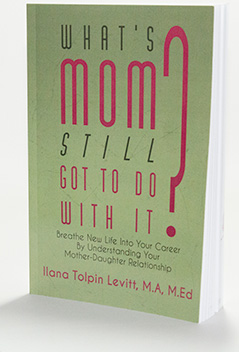 Most of us walk into an interview with the idea that there is a gap between our qualifications and the qualifications necessary for the job, whether or not that gap actually exists.
Most of us walk into an interview with the idea that there is a gap between our qualifications and the qualifications necessary for the job, whether or not that gap actually exists.
Instead of preparing to highlight our strengths, we worry about how we’ll go about hiding our weaknesses. The thing is, we all have shortcomings, and nobody fits the job description perfectly.
So where does all that self-doubt come from?
As children, we inherit all sorts of stories from our parents, our culture, and the world around us about about who we are and how we should interact with the world. These unspoken expectations can put us in the position of feeling like failures when we don’t live up to other people’s ideas of what success is, and we may internalize this feeling of not being enough without ever realizing it.
These unconscious and semi-conscious messages shape our stories about ourselves, which we then carry around with us in a constant stream of evaluative judgments running through our heads. We all have these insecurities, but we don’t have to let them affect our career!
Read on for three tips for rewriting your story for the challenging interview.
Practice Mindfulness
Mindfulness meditation is the practice of being aware of the present moment, on purpose, and without judgement. It allows us to truly observe those little voices of doubt in our minds without getting caught up in what they’re saying.
The benefits of regularly training your attention in this way are numerous. First, there are some of the more obvious benefits of being less “mindless” or habitual. By acknowledging the uncertainty and change occurring in the present, we can respond and adapt to what is actually happening, rather than to our assumptions.
Mindfulness has some concrete health benefits, too. Mindfulness has been linked with lower levels of the stress hormone cortisol, and also helps lower blood pressure. It has been linked to an increase in protective tissue in the brain. People who practiced mindfulness slept better than those who didn’t in one study, and it might even help you live longer!
Learn to Ignore the little voices of doubt
Once we’ve built that nonjudgemental self-awareness, we begin to see things we never noticed before, including where some of our own ideas about ourselves come from. The greater our self-awareness, the more opportunities we have to consciously choose our values and beliefs about ourselves.
You can start this process anytime by following these steps:
-
Make note of a negative message that enters your mind. It might get triggered by a negative interaction or disappointing experience.
-
Be aware of the negative generalizations. Ex.: “I’ll never get a job, I knew I wouldn’t amount to anything.”
-
Re-frame those thoughts with reality testing and affirmations. Ex.: “Just because this didn’t work out, doesn’t mean other things won’t work out. Look at what has worked out for me before. How can I repeat those successes?”
Look for the silver lining
Look for the silver lining in your weaknesses and use them as a mantra to combat those voices of doubt.” For example, a writer who is terrible at spelling might be in the habit of proof-reading her work many times before sending it in, catching not only spelling errors but content and grammar errors as well. Someone who isn’t good at planning ahead may have a moment of spontaneity (however anxiety-inducing it may be) and come up with some of her best ideas while thinking on her toes.
Our strengths are often the flip side of our weaknesses. Don’t be afraid to tell the truth about those weaknesses, and use it to your advantage in order to highlight your willingness to work on those weakness. A potential employer will see your growth mindset as a valuable asset.
Everyone has self-doubt when they walk into an interview. The thing is, nobody is really “perfect for the job.” You have the power to tell your story in the best way possible; all it takes is a little self-awareness and a commitment to let go of negative self-talk and focus on your strengths instead. Get interviewing practice as well as looking at yourself from a different perspective. Not only will the interviewer feel your confidence but you will increase your belief in yourself.
Have you rewritten your story? Join the conversation!


